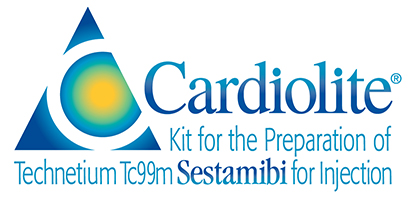- PATIENTS WELCOME
- UNDERSTANDING HEART DISEASE
Risk Factors for Heart Disease - ABOUT MYOCARDIAL PERFUSION IMAGING WITH CARDIOLITE®
- ADDITIONAL RESOURCES

Understanding Heart Disease
Understanding Heart Disease and
Coronary Artery Disease (CAD)1
Heart disease is a term used to describe all the diseases of the heart and blood vessels that feed the heart in the body. Coronary artery disease, or CAD, is the disease of the vessels that supply blood to the heart muscle. It is the most common form of heart disease. CAD is the leading cause of death in the U.S. for both men and women. If CAD goes undetected or untreated, there is the potential for more serious complications to occur, such as chest pain (called angina when caused by CAD) or heart attack. Fortunately, there are some important risk factors that can alert your doctor that you may be at risk for heart disease.
Risk Factors:
- Family history of heart disease
- Being overweight
- Lack of exercise
- Smoking
- Poor diet and excessive intake of alcohol
- Diabetes
- Presence of certain conditions (i.e., high blood pressure [hypertension], high cholesterol [hypercholesterolemia])
- Postmenopausal status in women
- Age and gender
Risk factors may assist your doctor in determining your likelihood of having or developing CAD. Unfortunately, they may not provide a complete and accurate answer. Your doctor may want additional information before deciding how to treat you. Myocardial perfusion imaging is often used to determine the presence and severity of physiologically significant CAD.
Diabetes and Coronary Artery Disease (CAD)2
If you have diabetes, here are a few things you should know about your risk for coronary artery disease (CAD), the most common form of heart disease.
Heart disease occurs more often in patients with diabetes as in those without diabetes. Commonly silent, heart disease often first manifests itself as acute myocardial infarction or cardiac death.
Risk Factors:
- Sedentary lifestyle
- Undesirable cholesterol levels
- Smoking
- Family history of premature coronary artery disease
- High blood pressure
Ask your doctor if a test for heart disease is right for you. The right test will be important to determine whether or not you have CAD.
Women and Coronary Artery Disease (CAD)3
According to the U.S. Department of Health and Human Services, almost one in every four women dies of heart disease.
Effective diagnosis of CAD in women requires healthcare professionals to understand and recognize the subtle, and often less common symptoms of cardiac ischemia – the condition that occurs when oxygen and bloodflow are cut off from the heart muscle. Some symptoms more commonly found in women may include: abdominal discomfort, nausea or vomiting, shortness of breath or a general feeling of illness (malaise). Women are also more likely to have other less common side effects such as heartburn, loss of appetite, feeling tired, coughing or heart flutters.
Depending on different factors, your doctor may recommend one or more tests to diagnose CAD. For women, test results can be affected by exercise capacity, body size and breast tissue. In a clinical study, test results were more specific when women received Cardiolite® (Kit for the Preparation of Technetium Tc99m Sestamibi for Injection) as part of their screening test.
Ask your doctor if a test for heart disease is right for you. The right test will be important to determine whether or not you have CAD.
- https://www.nhlbi.nih.gov/health-topics/coronary-heart-disease Accessed 4/13/ 2020.
- https://www.heart.org/en/health-topics/diabetes/why-diabetes-matters/cardiovascular-disease--diabetes Accessed 4/13/2020.
- https://www.womenshealth.gov/heart-disease-and-stroke Accessed 4/13/2020.


